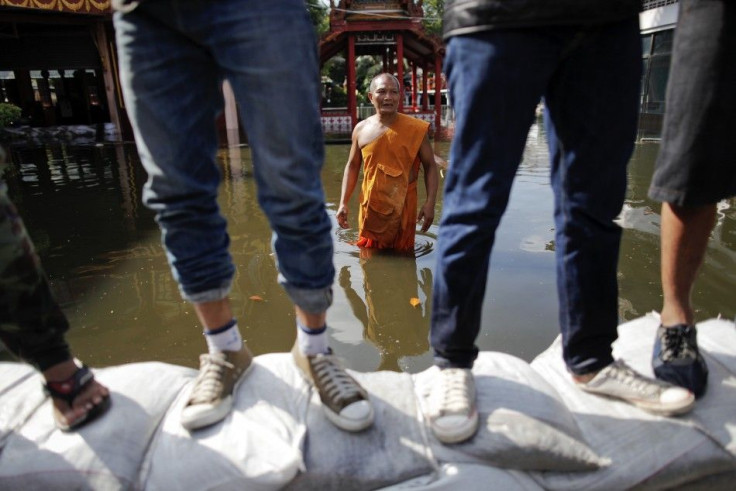Bangkok Flood: Worst is Over, but Thailand to be Submerged for Months

Bangkok has partially avoided Thailand's devastating floods, but it will takes months of work to get the city, and the country, back to normal, Prime Minister Yingluck Shinawatra said Monday.
Unseasonably high tides in the Chao Phraya River, which runs through Bangkok, will significantly slow the city's water draining efforts. Nonetheless, the capital's water defenses, including pumps, sandbags and dikes, have held up, and as long as there is no more additional water, the current run-off might not cause heavy flooding in Bangkok, Yingluck said.
The flood in Bangkok, which was started by massive monsoon rains in July, did impact 15 of Bangkok's 50 districts, according to CBS News, submerging some neighborhoods in up to seven feet of water. Additionally, six districts were evacuated.
U.S. Ambassador to Thailand Kristie A. Kenney still thinks that about two million people in are still affected by flooding, according to CNN.
The high waters have raised concern over waterborne illnesses -- the stagnant water has become a breeding ground of mosquitoes, and is reportedly black with sewage and garbage.
The flood has prompted Thailand to re-evaluate its water management system, and the Thai government will invest 800 billion baht ($26 billion) into new infrastructure, according to The Financial Times. Thailand's energy minister, Pichai Naripthaphan, also said that the government would spend 100 billion baht ($3.24 billion) on rebuilding important industrial zones.
The flooding was the first major test of Yingluck's government. Thailand's first female prime minister took office in August. While she created a centralized flood monitoring system, the prime minister was criticized by opposition parties for not declaring a state of emergency.
She has also been critiqued for focusing relief efforts on Bangkok, Thailand's economic and financial center, and for ignoring flooded provinces in the impoverished north.
The government is concerned about every individual who has experienced flooding, as well as those facing a lengthy period of floods, Yingluck said on her Facebook page. The government has emphasized with the provincial governors to exhaustively take care of the people.
Unicef is handing out 20,000 mosquito nets, as well as more than 100,000 relief kits and packages of bottled water to areas inundated by the flooding.
The country's prime minister has said that the city has 'dodged a bullet' -- the economic impact of central Bangkok being flooded would have been huge, and thankfully that did not happen -- but a huge part of the country is still under water, Matthew Cochrane of the International Committee of the Red Cross told CNN.
Outside the city it is certainly a humanitarian crisis, because there are people who have been cut off for weeks without any aid, supplies or food.
© Copyright IBTimes 2024. All rights reserved.











